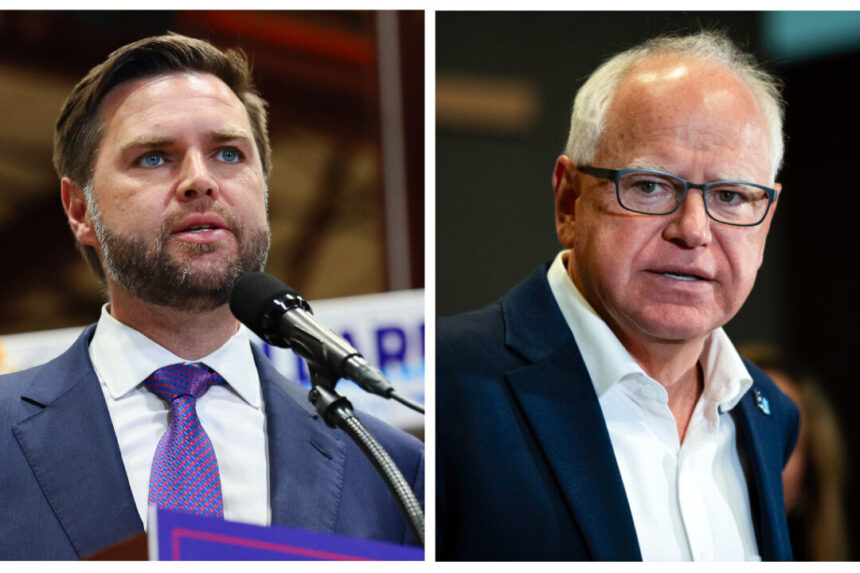With the vice presidential debate between Democrat Tim Walz and Republican JD Vance approaching on Oct. 1 in New York City, it’s worth noting that 15 out of America’s 46 presidents previously served as vice president. This list includes Harry Truman and Lyndon Johnson who assumed the presidency after the death of a president, Gerald Ford through succession, and Richard Nixon, George H.W. Bush, and Joe Biden through election.
While historically vice presidential candidates may not sway presidential elections, the current candidates, Walz and Vance, are significant for voters concerned about economic and national security threats from the Chinese Communist Party (CCP).
A comparison between Vance and Walz reveals a clear contrast in their stance towards China, with Vance being a strong critic of the CCP and Walz appearing more accommodating.
Vance’s personal experience and writings in “Hillbilly Elegy” reflect his views on China’s economic impact on American communities, while Walz’s interactions with China have raised questions about his ties to the CCP.
Walz’s frequent visits to China, his private business dealings, and his statements downplaying the need to confront China’s aggression stand in stark contrast to Vance’s military service, education, and outspoken criticism of China’s trade practices.
As voters weigh their choices in the upcoming debate, the candidates’ positions on China could play a crucial role in shaping their decision.
As the governor of Minnesota, Tim Walz has been vocal in his opposition to the tariffs imposed by the United States as a defense against China’s economic aggression. He has called on President Trump to “end the trade war with China,” emphasizing the importance of normalizing trade negotiations with the country’s 1.6 billion consumers.
Walz’s efforts to strengthen China-US relations at the sub-national level have raised concerns about increasing Chinese influence in the United States. His selection as Kamala Harris’s running mate was seen by China Daily, a CCP mouthpiece, as a move that could bring “sanity” to US-China relations, suggesting a softer stance towards Chinese economic aggression.
During his acceptance speech at the Democratic National Convention, Walz made no mention of the CCP or Chinese aggression, in contrast to Vance, who explicitly condemned communist China and the CCP’s aggressive tactics during his speech at the Republican National Convention.
If elected, Walz would become the highest-ranking US official with significant ties to communist China, raising concerns about potential accommodations to the CCP. With a high likelihood of becoming president in the future, Walz’s approach towards China poses a significant risk to US national security.
China scholar Adam Molon contributed to this article.
Views expressed in this article are opinions of the author and do not necessarily reflect the views of The Epoch Times.






